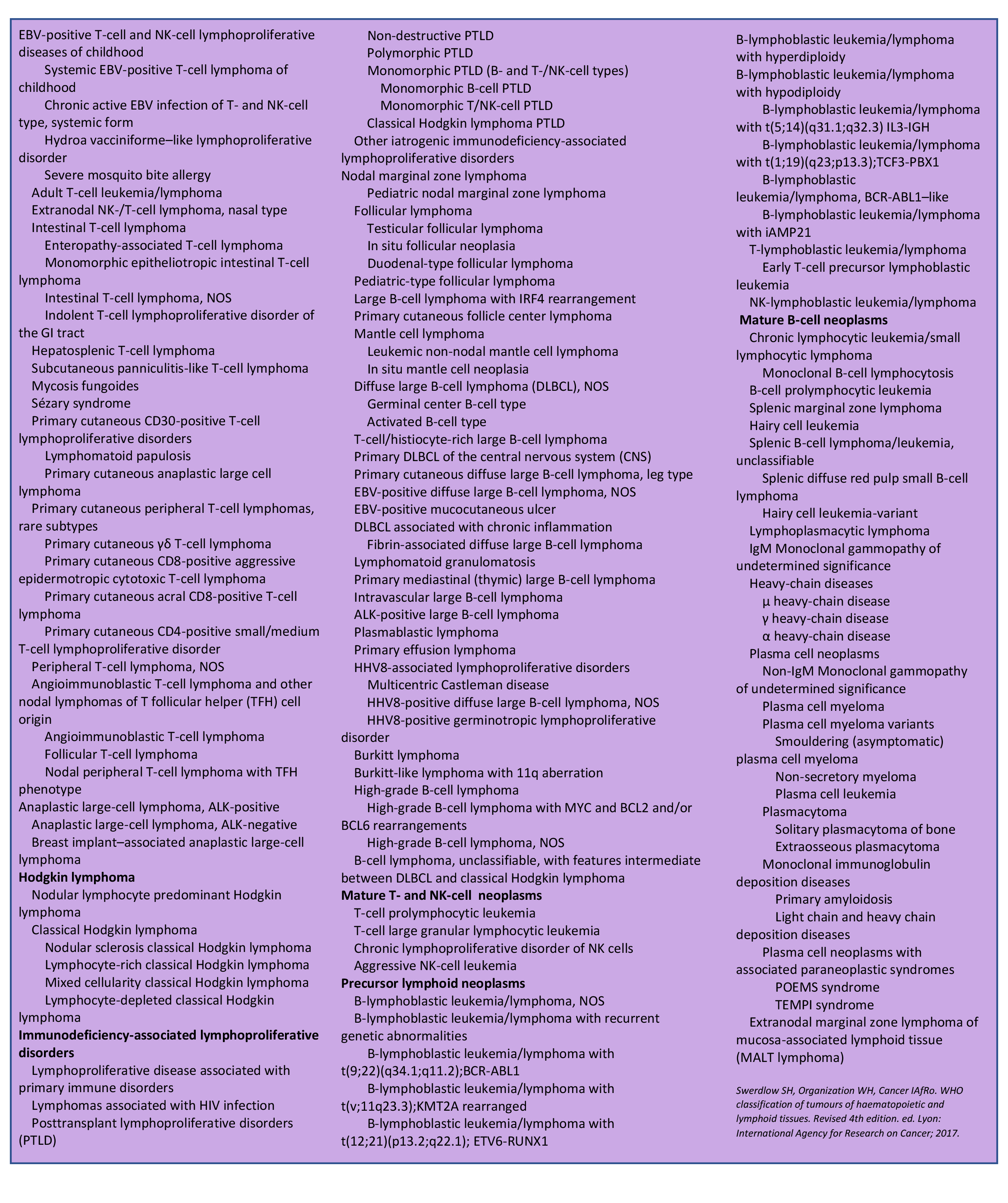Lymphoma – Know Your Subtype
How Your Subtype Impacts Your Care
Lymphoma is an umbrella term for over 80 lymphoma subtypes. Each subtype of lymphoma has its own clinical course, which means that each subtype has its own specific set of symptoms, diagnostic testing, staging (extent and spread of lymphoma), prognosis (outcome), treatment options, and follow-up care and management.
Lymphoma subtypes are often categorized into three major groups, Chronic Lymphocytic Leukemia (CLL), Hodgkin Lymphoma and Non-Hodgkin Lymphoma. The difference between Hodgkin and Non-Hodgkin Lymphoma’s (NHL) is primarily that the NHL subtypes are NOT Hodgkin lymphomas. There are over 60 subtypes that fall under the Non-Hodgkin Lymphoma umbrella, however it is important to note that NHL itself is not a specific type of lymphoma and it is only an umbrella term. Sometimes, lymphomas can also be grouped as either aggressive or indolent (non-aggressive lymphomas), however these are also umbrella terms for the many subtypes that fall under each of these categories. NHLs can be further categorized into additional umbrella terms: T-Cell Lymphomas and B-Cell Lymphomas.
All the ways your lymphoma may be categorized that does not provide you with a clear answer on your specific subtype:
A total list of all Lymphoma subtypes have been included for your understanding. The list of lymphoma subtypes can be overwhelming, especially knowing each has its own clinical course and treatment options. This is why it is important to know your exact subtype so that you can find information related to your specific subtype only and not general information about lymphoma that may not apply to your subtype.

It is very important to understand your lymphoma subtype. Knowing your subtype will allow you to self-educate and advocate for your healthcare, and help you to understand and prepare for your specific lymphoma journey. It will help you connect with others that are diagnosed with the same subtype and may help you feel supported throughout your care. Therefore, it is important that you receive this information from your doctor at diagnosis.
With how important understanding your subtype is, we at Lymphoma Canada find have found that there are patients that do not understand their lymphoma or subtype, or do not remember being told this information. From the 2020 Lymphoma Coalition survey of Canadian respondents, though small, there is a percentage of patients (9%) that are not aware at diagnosis that lymphoma is a type of cancer. Further between 19-25% of Canadian patients were either not told their specific subtype at diagnosis, or did not remember being told.
To advocate for better communication, recording, and understanding between patients and doctors, Lymphoma Canada highlights the need for patients to understand their subtype and ensure they are being provided with Canadian-specific resources and support. To address this, Lymphoma Canada, with the support of our Scientific Advisory Board comprised of hematologists/oncologists across Canada and other specialists, have developed 14 subtype fact sheets that address each stage of the patient’s lymphoma journey, providing Canadian-specific information for patients and caregivers.